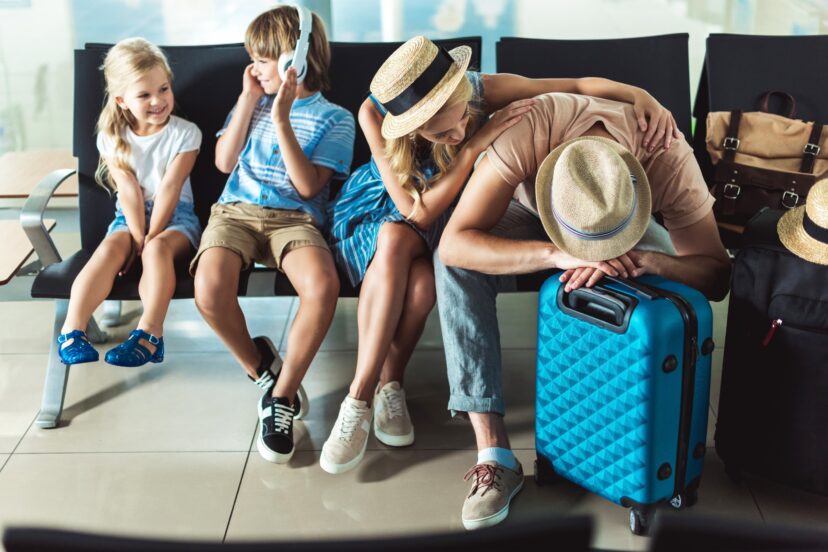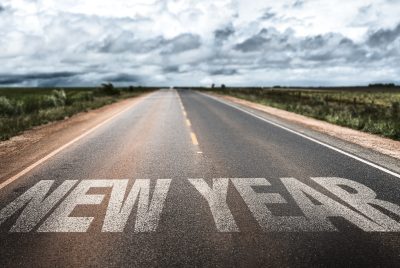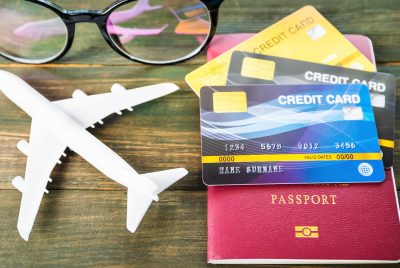Say Goodbye to Jet Lag: Top 10 Solutions for Well-Rested Travel
If you’ve ever embarked on a journey across time zones, there’s one pesky companion that tends to tag along – jet lag. You’re likely familiar with the dreaded jet lag that can throw off your travel groove. But fear not, for I’m here to share my top 10 solutions for bidding adieu to jet lag and ensuring well-rested travels. I’ve learned a few tricks to combat jet lag effectively. Whether you’re traveling solo, with your family and kids, or with seniors, these simple strategies will ensure your travel experience remains smooth and enjoyable.
Understanding Jet Lag
What is Jet Lag?
You’ve probably heard the term “jet lag” thrown around, but let’s break it down. Jet lag is your body’s way of telling you, “Hey, we’re not in Bora Bora anymore!” It’s the result of your internal clock, also known as circadian rhythms, being out of sync with the local time at your destination. This misalignment can lead to fatigue, irritability, and even digestive issues, putting a damper on your travel excitement. So, how can we tackle this challenge head-on?
Why Does Jet Lag Happen?
This circadian disarray occurs when you rapidly traverse multiple time zones, causing your internal clock to lag behind or speed ahead. This can lead to a myriad of discomforts, from grogginess and mood swings to digestive woes. Traveling with family members, especially kids and seniors, can amplify these challenges.
Top 10 Techniques for Well-Rested Travel
1 – Plan Ahead for Sleep
Before you embark on your journey, start shifting your sleep schedule by an hour or so each day. This gradual approach will help your body adjust smoothly to the new time zone.
Remember, it’s not just about where you’re leaving from; it’s also about where you’re heading. If you’re traveling to a destination with a significant time difference, pay extra attention to adjusting your sleep accordingly. It might mean sacrificing a bit of late-night movie and TV bingeing, but your well-rested self will thank you later.
If you’re traveling eastward and it’s morning at your destination, try to stay awake until the local bedtime. If you’re traveling westward and it’s evening, resist the temptation to sleep until it’s nighttime. This adjustment might require some willpower, but it will significantly aid in acclimating to the new time zone.
The key lies in gradual adjustments. Before your trip, start shifting your sleep schedule in small increments. If you’re traveling eastward, try going to bed and waking up an hour earlier each day a few days prior to departure. For westward travel, do the opposite. This way, your body can ease into the new time zone, reducing the shock on arrival.
2 – Stay Hydrated
Dehydration is jet lag’s sneaky accomplice. Combat it by sipping water throughout the journey. A comprehensive study on the correlation between dehydration and sleep quality in travelers provides valuable advice on hydration techniques and recommends balanced nutritional practices to support overall well-being.
Getting dehydrated is a jet lag amplifier, making those groggy feelings even worse. To counter this, make a conscious effort to hydrate before, during, and after your flight. Opt for water over sugary drinks and limit caffeine intake, as it can contribute to dehydration.
Staying hydrated isn’t just about drinking water; it’s also about making smart choices when it comes to what you eat and drink. This leads us to the next strategy.
3 – Mindful Eating
With hydration, let’s talk about nutrition—consuming water-rich foods like fruits and vegetables can contribute to your overall hydration levels. Maintaining a balanced diet also works wonders. Incorporate fruits, fiber-packed veggies, lean proteins like chicken or fish, and whole grains into your meals. This can provide sustained energy without burdening your stomach. This not only supports your body’s energy levels but also aids in digestion, which can be a lifesaver during travel.
When it comes to meals, opt for light, nutrient-rich options that are easy on your digestive system. Avoid heavy, greasy meals that can upset your digestion and make jet lag even more of a challenge.
4 – Limit Caffeine and Alcohol
Sure, that coffee might be your lifeline but consume it wisely. Stick to mornings and avoid them in the afternoon to prevent sleep disruptions. Caffeine’s effects can last for hours, potentially disrupting your sleep if consumed too late.
As for alcohol, go easy – it can sabotage your sleep quality. While it might be tempting to unwind with a glass of wine, alcohol can actually interfere with your sleep patterns. It might help you fall asleep initially, but it can lead to fragmented and less restful sleep later in the night.
Additionally, while caffeine and alcohol can contribute to dehydration, some herbal teas, such as chamomile or peppermint, can have a soothing effect and support relaxation.
5 – Embrace Natural Light
Sunlight is a superhero when it comes to resetting your internal clock. Spend time outdoors upon arrival – it’s like giving your body a friendly nudge in the right direction.

According to a Sleep Foundation article, light is the most powerful influence on circadian rhythm, and strategic light exposure may help adjust your internal clock to avoid or reduce jet lag. The effect on circadian rhythm depends on the level and timing of light exposure. Sunlight has the highest level of illumination and the strongest circadian effects.
Sunlight – nature’s timekeeper. It plays a crucial role in resetting your body’s internal clock. Upon arriving at your destination, spend time outdoors during daylight hours. This exposure to natural light helps signal to your body that it’s time to be awake and active.
6 – Strategic Napping
Short naps can be your secret weapon against fatigue. Aim for about 20-30 minutes, and avoid dozing off too close to bedtime and falling into deep sleep, which can leave you groggy upon waking. Additionally, a well-timed cup of coffee or tea can help you stay awake and alert, especially during the day.

Remember, timing is everything when it comes to naps. If you’re feeling the need to snooze, try to do so in the early afternoon. This aligns with the natural dip in your circadian rhythms, giving you a quick boost without interfering with your nighttime sleep.
7 – Physical Activity and Relaxation Techniques
To boost your energy and aid in adjusting, consider engaging in light physical activity. A leisurely walk or some gentle stretching can work wonders. Just be sure not to overexert yourself, as your body might still be catching up from the journey. Gentle exercise gets your blood flowing and your energy up. A stroll or some stretches can help you adjust to the new time zone more quickly.
Preparing your mind for rest is just as important as preparing your body. Engaging in relaxation techniques can calm your nervous system and set the stage for a peaceful sleep. Experiment with deep breathing exercises, meditation, or gentle yoga stretches before bedtime. These practices can help you unwind and transition from the excitement of your travels to a state of tranquility.
8 – Establish a Bedtime Routine
Just like kids need a bedtime routine, so do your internal clocks. Engage in calming activities like reading or deep breathing before bed to signal your body that it’s time to wind down.
Creating a calming bedtime routine can work wonders in preparing your body for sleep. Engage in relaxing activities such as reading a book, practicing deep breathing, or taking a warm bath. These rituals send signals to your body that it’s time to wind down.
9 – Use Technology Wisely
Screens emit blue light that can mess with your sleep-inducing melatonin. Give yourself an electronic curfew an hour or so before bedtime. The blue light emitted by phones, tablets, and laptops can suppress melatonin production, making it harder for you to fall asleep. Consider disconnecting from screens at least an hour before bedtime for a better night’s sleep.
A study on the link between electronic devices and melatonin suppression advocates for a “digital detox” approach, recommending reduced screen usage before sleep to enhance sleep quality and mitigate jet lag symptoms.
Brand: Swanson W/I/O
Unit Count: 30.00 Count
Item Form: Softgel
Item Weight: 0.05 Kilograms
Age Range (Description): Adult
10 – Be Patient
Every traveler’s body is unique, and what works for one person may not work for another. It’s important to experiment with different strategies and find the combination that suits you best. Keep a travel journal to track your experiences and note which techniques yield the most positive results.
Remember, your body needs time to adjust. Be patient with yourself and give your internal clock the chance to catch up with your wanderlust.
Tips for Traveling Families, Kids, and Seniors
Traveling with Kids
Traveling with little adventurers? Stick to their routine as much as possible. Encourage naps and bedtimes that align with the destination’s local time. Keep them hydrated and engaged with activities during the journey to minimize the impact of jet lag.
Senior Travelers

For seniors, who are often more sensitive to time zone shifts, it’s crucial to follow the same strategies while considering any medical conditions. Consult with a healthcare provider before your trip to ensure a seamless travel experience.
Bedtime Thoughts
Traveling is an incredible experience that broadens your horizons and creates lasting memories. Armed with these top-notch techniques, you’re ready to tackle jet lag head-on. By planning ahead, staying hydrated, soaking up natural light, and embracing mindful habits, you’ll bid farewell to jet lag and welcome in a journey full of energy and enthusiasm.
So, whether you’re traveling with your adventurous family, embarking on a solo exploration, or accompanying beloved seniors, these techniques will empower you to conquer jet lag and embrace each moment of your journey with open arms. Jet lag may try to keep up, but armed with these strategies, you’ll always be one step ahead – ready to savor every destination, one well-rested step at a time.
Remember, the key is to be mindful of your body’s needs and rhythms, allowing you to arrive at your destination refreshed and ready to explore. Bon voyage and happy travels!
FAQs
Can I take melatonin supplements to combat jet lag?
Absolutely, but consult a healthcare professional first. Melatonin supplements can help reset your internal clock, but their effectiveness varies.
How long does it take to adjust to a new time zone?
On average, it takes about a day to adjust per time zone crossed. Patience is key during this process, as your body adapts to the new rhythm.
Are there specific foods I should avoid before bedtime?
Indeed, heavy and spicy foods can disrupt your sleep. Opt for light, easily digestible meals to ensure a restful night’s sleep.
Can I use a sleep mask to help with jet lag?
Certainly, a sleep mask can be helpful, especially if you’re traveling during daylight hours at your destination. It blocks out light and signals your body that it’s time for rest.
How do I help my kids adjust to a new time zone?
Stick to their schedule as closely as possible, and expose them to natural light during the day. Gradually adjust their sleep times before the trip to ease the transition.
Can I use sleep aids for a quicker adjustment?
While some sleep aids might offer temporary relief, it’s best to consult a healthcare professional before using them. They can provide guidance based on your individual needs and health conditions.
How can I encourage my seniors to stay active during travel?
Gentle exercises like walking or stretching are great options for seniors. Encourage them to explore their surroundings and engage in activities that align with their comfort levels.
What’s the role of hydration in combating jet lag?
Staying hydrated is crucial for your overall well-being and helps alleviate jet lag symptoms. Proper hydration supports your body’s functions, including adapting to new time zones.
Can I use natural remedies to adjust to a new time zone?
Natural remedies like herbal teas (chamomile, valerian root) can help relax your body, making it easier to adjust to a new time zone. However, results may vary, so it’s essential to find what works best for you.
Turmeric, Melatonin & Valerian Root Sleep Aid Supplement.
Natural Sleep Aid for Adults with L-Theanine, Ginger & Black Pepper Extract. Melatonin 3mg, Valerian Root Capsules.
Relaxation & Sleep Support
How can I manage jet lag during short trips?
Even on short trips, jet lag can still impact your travel experience. Prioritize hydration, light exposure, and mindful habits to help your body adjust quickly, ensuring you make the most of your time away.
Disclaimer: The information provided in this article is for general guidance purposes only. Individual needs and circumstances may vary. It’s advisable to consult with healthcare professionals or travel experts for personalized advice and recommendations.







